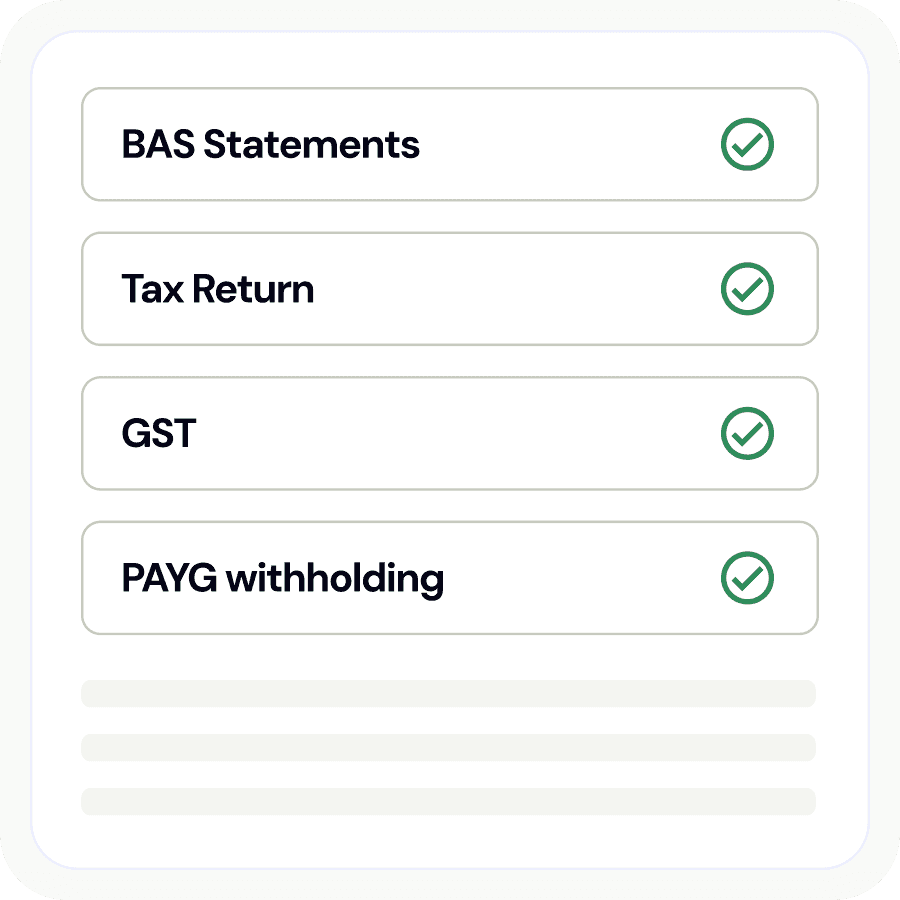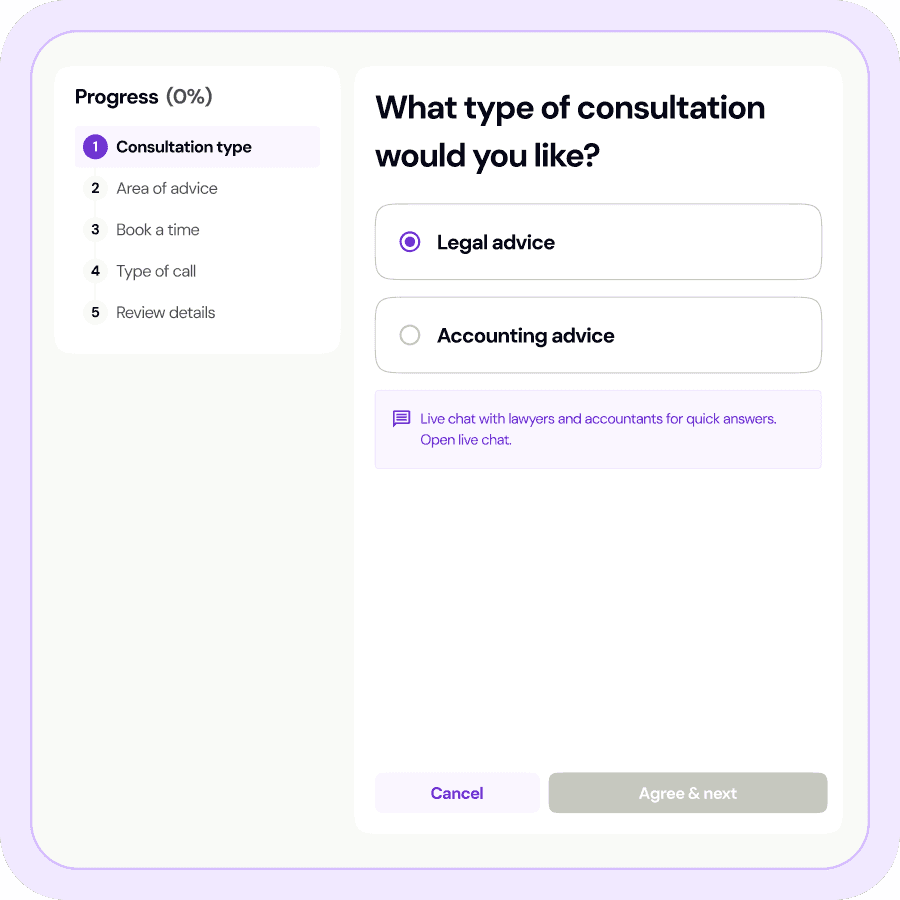Are you confused about whether you need to lodge an IAS or BAS for your business? You’re not alone. Many Australian business owners struggle to understand the difference between these two crucial forms, which can lead to costly mistakes and penalties.
Both the Instalment Activity Statement (IAS) and the Business Activity Statement (BAS) are tax forms required by the ATO, but they serve different purposes. Knowing which one applies to your business can save you time, stress, and unnecessary paperwork.
In this guide, we’ll explain the key differences between IAS and BAS, when each form is required, and provide practical advice on how to manage these obligations efficiently. By the end, you’ll have a clear understanding of what your business needs, helping you stay compliant with ease.
Table of Contents
What is an Instalment Activity Statement (IAS)?
An Instalment Activity Statement (IAS) is a form that businesses and individuals in Australia use to report and pay certain taxes to the Australian Taxation Office (ATO). It is typically required for businesses or individuals who don’t need to submit a Business Activity Statement (BAS) because they are not registered for GST but still need to lodge and pay other periodic taxes like
- Pay As You Go (PAYG) instalments (regular payments made throughout the year that help to spread out your tax burden)
- PAYG withholding (income tax withheld from employee’s earnings).
Freelancers, contractors, and small businesses earning less than $75,000 per year (the threshold for compulsory GST registration) commonly use IAS to report taxes.
If you’re self-employed or run a small service-based business without GST obligations, you’re likely to use an IAS to meet your tax payment requirements as well.
Larger businesses who are registered for GST and also have PAYG Withholding obligations of more than $25,000 per year will prepare both quarterly BAS and monthly IAS.
What is a Business Activity Statement (BAS)?
A Business Activity Statement (BAS) is a form that Australian businesses use to report and pay several tax obligations to the Australian Taxation Office (ATO). It is primarily required for businesses that are registered for the Goods and Services Tax (GST), but it can also cover other tax obligations such as:
- Pay As You Go (PAYG) withholding
- Fringe Benefits Tax (FBT) instalments
- PAYG instalments (for business income tax).
The purpose of the BAS is to simplify the process of tax reporting by allowing GST-registered businesses to submit multiple tax-related details in one form, rather than filing separate forms for each tax.
Key differences between IAS and BAS
Although the IAS and BAS are both used to report and pay various tax obligations, they are required in vastly different circumstances and report different types of tax information.
Here’s a breakdown of their key differences:
BAS vs IAS: When each is used
IAS is typically required for businesses that are not registered for GST but still have tax obligations. This includes:
- Businesses that need to pay PAYG (Pay As You Go) instalments on their income.
- Businesses or employers that need to report PAYG Withholding for employee wages but are not registered for GST.
An IAS is also required for those businesses that are registered for GST and have PAYG Withholding obligations of over $25,000 per year.
In contrast, the BAS covers a broader range of tax obligations than the IAS. It is essential for businesses that report GST (Goods and Services Tax) on sales and purchases and need to report other tax-related information, such as
- PAYG Instalments
- PAYG Withholding
- Fuel tax credits
- Fringe benefits tax (FBT) instalments.
Information reported in BAS vs. IAS
The IAS generally summarises the amounts of PAYG Instalments or PAYG Instalment a specific business must pay for the specific lodgement period.
BAS, on the other hand, is used to report
- GST on sales and purchases
- PAYG Withholding
- PAYG Nnstalments
- Fuel tax credits
- Fringe Benefits Tax Instalments.
Frequency of lodgement for BAS and IAS
Most small businesses are required to lodge IAS on a monthly or quarterly basis depending on the ATO requirements for the business involved.
BAS, on the other hand, may be lodged monthly, quarterly, or annually, depending on the size of the business, its turnover, and ATO guidelines.
Larger businesses may need to report more frequently (monthly), while smaller ones may lodge quarterly or annually.
Below is a summary table to help put things in perspective.
| IAS (Instalment Activity Statement) | BAS (Business Activity Statement) | |
| When is it used? | When a business is not registered for GST, or if they are registered for GST and have PAYG Withholding obligations of over $25,000 per year. | When a business is registered for GST |
| What information is reported? | PAYG Instalments, PAYG Withholding | GST, PAYG (Instalments and Withholding) fuel tax credits, Fringe benefits tax |
| How frequently is it lodged? | Monthly or quarterly | Monthly, quarterly, or annually |
When to use IAS and when to use BAS
Knowing when to use the Instalment Activity Statement (IAS) versus the Business Activity Statement (BAS) is crucial to ensure your business stays compliant with ATO regulations.
For this, you’ll need to understand the specific criteria the ATO uses to determine which form a business should submit.
The ATO uses a business GST registration/eligibility or lack of it to determine which form is required. For example:
- A sole trader who earns below the GST registration threshold (currently $75,000 annually) does not need to collect or report GST. However, they may still need to pay income tax on their earnings throughout the year via PAYG instalments. In this case, they would lodge an IAS to report these PAYG instalments.
- A small business that employs staff may need to withhold PAYG amounts from employee wages. But if they do not meet the GST threshold and are not registered for GST, they will use an IAS to report their PAYG withholding.
- A retail business with an annual turnover exceeding $75,000 is required to register for GST. They collect GST on their sales and pay GST on their purchases. They must lodge a BAS to report the GST collected and the GST credits they can claim. Additionally, they will also report any PAYG withholding for their employees. Depending on their level of PAYG Withholding, they may need to prepare a quarterly BAS and monthly IAS in the “off months” i.e. those months where a BAS is not prepared.
FAQ
What is the main difference between IAS and BAS?
The main difference between Instalment Activity Statements (IAS) and Business Activity Statements (BAS) is that IAS is used to report PAYG (Pay As You Go) instalments for individuals or businesses not registered for GST, while BAS is for reporting GST, PAYG, and other taxes. So, IAS is simpler and for non-GST payers, while BAS covers broader tax obligations.
Can a business be required to lodge both IAS and BAS?
Yes, a business can be required to lodge both IAS and BAS. This happens if the business needs to report PAYG withholding on IAS and other taxes like GST on BAS at different periods. For example, a business might use IAS to pay monthly PAYG instalments if it lodges BAS quarterly.
How often are IAS and BAS lodged?
IAS and BAS are typically lodged monthly or quarterly, depending on the size and tax obligations of the business. In certain circumstances, BAS can be lodged annually.
IAS or BAS? Which one should you choose?
Instalment Activity Statements (IAS) and Business Activity Statements (BAS) are two vital forms that you must master as an Australian business owner.
These reports play a crucial role in tax obligations, and understanding when and how to lodge them can prevent costly penalties and audits.
Understandably, navigating the complexities of tax compliance can be challenging. That’s where professional guidance becomes invaluable.
Lawpath offers specialised business tax compliance services designed to simplify the process, ensuring that your business meets all regulatory requirements with confidence. Our dedicated team can help you stay on top of your tax obligations, streamline tax reporting, and keep your business safe from the penalties that come with non-compliance.
Explore Lawpath’s tax compliance services and resources today. Let us help your business to thrive while staying compliant with tax obligations.









